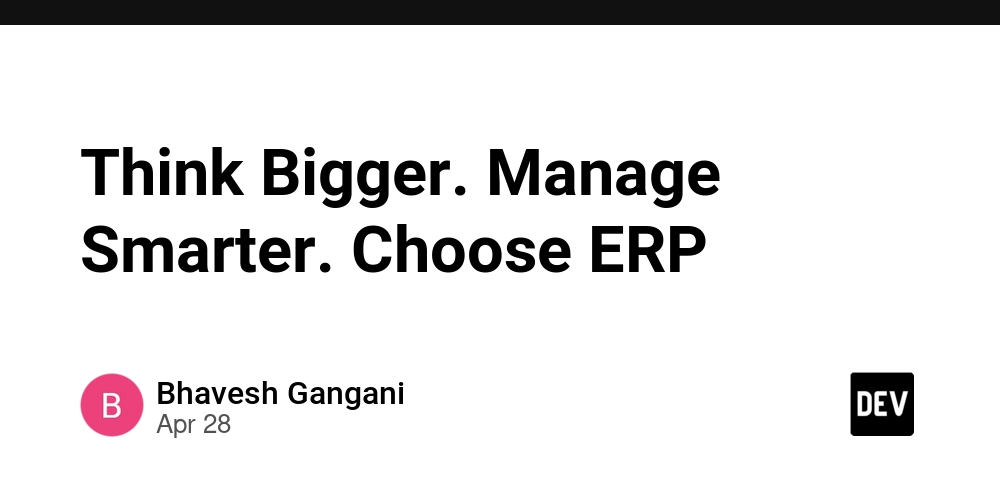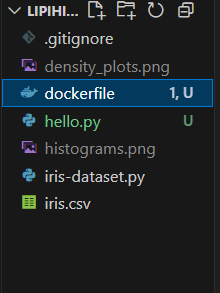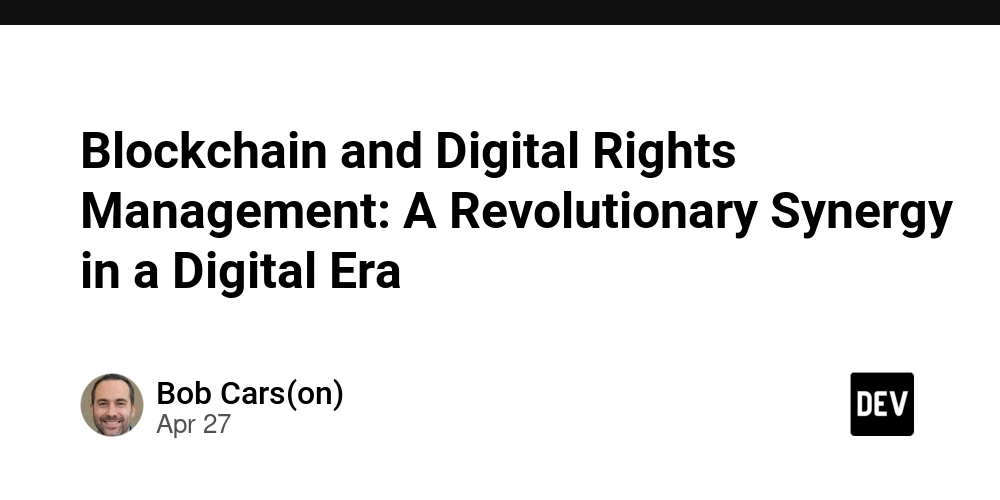Think Bigger. Manage Smarter. Choose ERP
Every business, whether small or large, faces challenges in managing operations efficiently and staying ahead of the competition. To tackle these challenges, businesses need solutions that go beyond traditional management methods. That’s where Enterprise Resource Planning (ERP) systems make a difference. ERP software is designed to unify and streamline your business functions, helping you make smarter decisions, improve efficiency, and scale your operations with ease. Whether it’s automating workflows, providing real-time data insights, or offering seamless collaboration across teams, an ERP system is an essential tool for businesses aiming to think bigger and manage smarter. In this blog, we’ll explore how ERP can transform the way you operate, why it’s crucial for business growth, and how choosing the right system can lead to long-term success. What is ERP and Why Should You Choose It? An Enterprise Resource Planning (ERP) system is a comprehensive software solution that integrates and manages core business processes across various departments, such as finance, human resources, supply chain, manufacturing, and customer service. By centralizing data and automating processes, ERP systems help businesses operate more efficiently and with greater visibility into their day-to-day operations. Key Benefits of ERP Systems Centralized Data Management: ERP systems gather and store information in one central location, ensuring that all departments can access accurate, up-to-date data. Streamlined Processes: With automation at the heart of ERP, repetitive tasks such as order processing, invoicing, and inventory management are handled more efficiently. Improved Collaboration: By connecting different business functions, ERP fosters better communication and collaboration between teams. Real-Time Insights: ERP systems provide real-time data and reporting, allowing businesses to make informed decisions quickly. Scalability: As your business grows, an ERP system can scale with you, adapting to new requirements and processes without disrupting operations. Why Choose ERP? Choosing an ERP system is not just about integrating software; it’s about transforming your business operations for the better. A good ERP system supports: Improved decision-making through data-driven insights. Reduced operational costs by automating manual tasks and eliminating redundancies. Enhanced customer satisfaction with better order fulfillment and communication. Stronger compliance with regulatory standards through robust reporting and auditing features. In a competitive business landscape, choosing ERP means adopting a smarter way of managing and expanding your business, with the tools and insights you need to stay ahead. Think Bigger: ERP Helps Scale Your Business In today’s dynamic business world, thinking bigger is crucial to staying competitive and achieving long-term success. As businesses grow, the complexity of managing operations—such as inventory, financials, human resources, and customer relationships—also increases. This is where an ERP system proves invaluable. ERP systems are designed to scale with your business, providing the flexibility to grow without being bogged down by inefficiencies or data silos. By automating tasks and centralizing business functions, ERP allows businesses to expand smoothly and manage larger operations with greater control and visibility. How ERP Helps Your Business Scale Seamless Expansion of Operations: As you open new locations, introduce new products, or enter new markets, an ERP system can quickly integrate these changes without disrupting day-to-day operations. The system’s scalability ensures that business processes remain efficient and coordinated as you grow. Increased Efficiency: With an ERP system, routine tasks like inventory management, financial reporting, and order processing are automated. This reduces the manual effort required and ensures faster decision-making, which is crucial when scaling operations. Better Resource Allocation: ERP systems help businesses allocate resources more effectively by providing real-time visibility into stock levels, workforce productivity, and financial status. This insight helps you plan and execute strategies for expansion while avoiding overstocking or underutilizing resources. Real-Time Data for Smarter Growth: As your business grows, access to real-time data becomes even more important. ERP systems offer dashboards and reporting tools that provide insights into key performance indicators (KPIs), customer trends, and operational bottlenecks, enabling you to make strategic decisions based on real-time data. Improved Customer Relationships: Scaling your business means serving more customers. ERP systems help you maintain consistent and high-quality customer service by integrating customer relationship management (CRM) into your operations. With a unified system, customer interactions and data are strea

Every business, whether small or large, faces challenges in managing operations efficiently and staying ahead of the competition. To tackle these challenges, businesses need solutions that go beyond traditional management methods. That’s where Enterprise Resource Planning (ERP) systems make a difference.
ERP software is designed to unify and streamline your business functions, helping you make smarter decisions, improve efficiency, and scale your operations with ease. Whether it’s automating workflows, providing real-time data insights, or offering seamless collaboration across teams, an ERP system is an essential tool for businesses aiming to think bigger and manage smarter.
In this blog, we’ll explore how ERP can transform the way you operate, why it’s crucial for business growth, and how choosing the right system can lead to long-term success.
What is ERP and Why Should You Choose It?
An Enterprise Resource Planning (ERP) system is a comprehensive software solution that integrates and manages core business processes across various departments, such as finance, human resources, supply chain, manufacturing, and customer service.
By centralizing data and automating processes, ERP systems help businesses operate more efficiently and with greater visibility into their day-to-day operations.
Key Benefits of ERP Systems
Centralized Data Management: ERP systems gather and store information in one central location, ensuring that all departments can access accurate, up-to-date data.
Streamlined Processes: With automation at the heart of ERP, repetitive tasks such as order processing, invoicing, and inventory management are handled more efficiently.
Improved Collaboration: By connecting different business functions, ERP fosters better communication and collaboration between teams.
Real-Time Insights: ERP systems provide real-time data and reporting, allowing businesses to make informed decisions quickly.
Scalability: As your business grows, an ERP system can scale with you, adapting to new requirements and processes without disrupting operations.
Why Choose ERP?
Choosing an ERP system is not just about integrating software; it’s about transforming your business operations for the better. A good ERP system supports:
Improved decision-making through data-driven insights.
Reduced operational costs by automating manual tasks and eliminating redundancies.
Enhanced customer satisfaction with better order fulfillment and communication.
Stronger compliance with regulatory standards through robust reporting and auditing features.
In a competitive business landscape, choosing ERP means adopting a smarter way of managing and expanding your business, with the tools and insights you need to stay ahead.
Think Bigger: ERP Helps Scale Your Business
In today’s dynamic business world, thinking bigger is crucial to staying competitive and achieving long-term success. As businesses grow, the complexity of managing operations—such as inventory, financials, human resources, and customer relationships—also increases. This is where an ERP system proves invaluable.
ERP systems are designed to scale with your business, providing the flexibility to grow without being bogged down by inefficiencies or data silos. By automating tasks and centralizing business functions, ERP allows businesses to expand smoothly and manage larger operations with greater control and visibility.
How ERP Helps Your Business Scale
Seamless Expansion of Operations: As you open new locations, introduce new products, or enter new markets, an ERP system can quickly integrate these changes without disrupting day-to-day operations. The system’s scalability ensures that business processes remain efficient and coordinated as you grow.
Increased Efficiency: With an ERP system, routine tasks like inventory management, financial reporting, and order processing are automated. This reduces the manual effort required and ensures faster decision-making, which is crucial when scaling operations.
Better Resource Allocation: ERP systems help businesses allocate resources more effectively by providing real-time visibility into stock levels, workforce productivity, and financial status. This insight helps you plan and execute strategies for expansion while avoiding overstocking or underutilizing resources.
Real-Time Data for Smarter Growth: As your business grows, access to real-time data becomes even more important. ERP systems offer dashboards and reporting tools that provide insights into key performance indicators (KPIs), customer trends, and operational bottlenecks, enabling you to make strategic decisions based on real-time data.
Improved Customer Relationships: Scaling your business means serving more customers. ERP systems help you maintain consistent and high-quality customer service by integrating customer relationship management (CRM) into your operations.
With a unified system, customer interactions and data are streamlined, leading to quicker response times and more personalized services.
Manage Smarter: Key Features of ERP Systems
As businesses grow, managing different processes and departments effectively becomes increasingly difficult. ERP systems help businesses manage smarter by providing a unified platform that integrates all aspects of your operations. The right ERP system can transform the way your business operates, allowing you to manage everything from inventory to finances with greater efficiency and ease.
Key Features of an ERP System
Centralized Data Management
One of the most powerful features of an ERP system is its ability to centralize data. Rather than having disparate systems and databases across departments, ERP consolidates everything in one place. This ensures that every department—whether it’s finance, sales, or inventory—has access to the same accurate and up-to-date information.
This centralized data management fosters better collaboration, as everyone is working with the same insights and figures, making it easier to align strategies and decisions across the business.
Automation of Routine Tasks
An ERP system automates many of the repetitive tasks that previously required manual input. This includes processes like invoicing, order management, payroll, and inventory tracking. By reducing human error and the time spent on administrative tasks, employees can focus on more strategic and value-adding activities.
For example, inventory management becomes more accurate with automatic updates based on real-time sales data, which prevents stockouts and overstocking.
Advanced Reporting & Analytics
ERP systems come equipped with powerful reporting and analytics tools that provide real-time insights into business performance. These reports can cover everything from financial statements and sales trends to operational bottlenecks and inventory levels.
The ability to access detailed reports at the click of a button helps decision-makers take a proactive approach, spotting opportunities or issues before they escalate.
Inventory and Supply Chain Management
Effective inventory management is crucial for businesses, especially those involved in manufacturing, distribution, and retail. ERP systems provide comprehensive tools for tracking inventory in real-time, forecasting demand, and managing supplier relationships.
With built-in inventory tracking, ERP systems ensure that businesses can efficiently manage their supply chain, minimizing delays and reducing costs associated with stock-outs or excess inventory.
Customer Relationship Management (CRM)
Many ERP systems include built-in CRM capabilities, allowing businesses to manage customer interactions and sales pipelines more efficiently. With an integrated CRM, businesses can track customer communications, manage sales opportunities, and enhance customer service.
This seamless integration helps businesses improve customer satisfaction by offering faster responses, personalized services, and targeted marketing strategies.
Financial Management and Compliance
ERP systems provide robust financial management features, including accounting, budgeting, financial reporting, and compliance tracking. These features ensure that your business remains compliant with tax regulations, accounting standards, and industry-specific guidelines.
By automating financial processes and generating accurate reports, ERP systems reduce the risk of errors and ensure that financial decisions are based on real-time data.
Scalability and Customization
A key benefit of ERP is its ability to scale as your business grows. Whether you’re opening new locations, adding product lines, or hiring more staff, an ERP system can adapt to your evolving needs.
Additionally, many ERP systems are highly customizable, allowing businesses to tailor features and workflows to suit their specific requirements. This ensures that the system grows with your business without the need for a major overhaul.
ERP: The Backbone of Smarter Management
ERP systems are not just about managing day-to-day tasks—they enable businesses to operate smarter. With features like centralized data management, process automation, advanced reporting, and integrated CRM, ERP empowers businesses to streamline operations, improve decision-making, and scale effectively.
By leveraging these features, businesses can shift from managing operations reactively to managing them proactively, positioning themselves for success in the long run.
Conclusion:
In today’s fast-paced and competitive business world, success depends on more than just hard work—it’s about making smart choices and managing your resources efficiently. Enterprise Resource Planning (ERP) systems provide businesses with the tools to streamline operations, scale effectively, and make data-driven decisions that foster growth.
By centralizing data, automating processes, and offering real-time insights, ERP enables businesses to manage smarter, not harder.
Whether you're looking to optimize day-to-day tasks or position your business for future expansion, ERP can help you achieve both. By choosing the right ERP system, you can improve efficiency, reduce costs, enhance customer relationships, and ultimately unlock your business’s full potential.
It’s time to think bigger and embrace smarter management. Choose ERP—and watch your business thrive.








































































